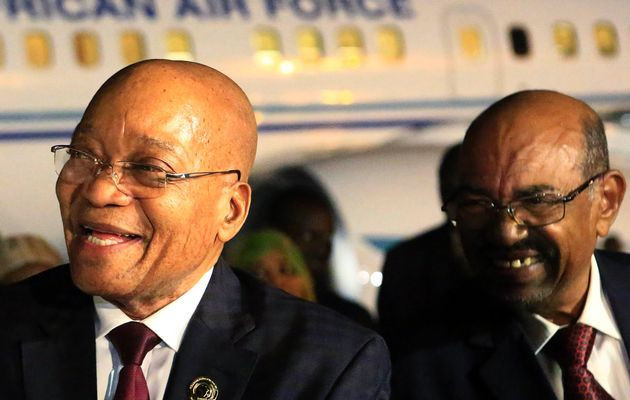South Africa Court Invites Charges Against Government Over Bashir, Following An Investigation

A South African judge has invited an investigation into the controversy surrounding Sudan’s President Omar al-Bashir, who managed to once again evade arrest for alleged war crimes. The High Court in Pretoria has asked prosecutors to consider charging the South African government over allowing the Sudanese leader to slip out of the country, despite legal orders from Pretoria and the International Criminal Court, according to Reuters.
"A democratic state based on the rule of law cannot exist or function if the government ignores its constitutional obligations and fails to abide by court orders," High Court Judge Dustan Mlambo said Wednesday in a televised statement in the Pretoria court. "The departure of President Bashir from this country ... demonstrates non-compliance with the court's order. For this reason we also find it prudent to invite the National Director of Public Prosecutions to consider whether criminal proceedings are appropriate."
The South African government is expected to issue an affidavit Thursday explaining why it allowed Bashir to leave the country. Officials had said Bashir was granted immunity to attend the 25th African Union summit in Johannesburg, Reuters reported.
Last week, a South African online newspaper reported that South Africa’s President Jacob Zuma and his key security ministers helped Bashir flee the country. Zuma and four ministers plotted to get Bashir out of South Africa and pretended not to know of his whereabouts, government sources told Mail & Guardian.
The ICC has an outstanding warrant for Bashir’s arrest, alleging that he was responsible for the deaths of thousands of people during the Darfur conflict in Sudan that started in 2003 and raged on for yours. Bashir visited South Africa for the African Union summit, which began June 7, and departed from a military airport near the capital Pretoria on June 15, unhindered by national authorities who were ordered by the High Court to detain him.
South Africa is one of 34 African nations that are States Parties to the Rome Statute and members of the ICC. But the continent has a history of political hostility toward the ICC. The African Union, a 54-member bloc that represents the continent’s governments, has declared that no sitting head of state should be prosecuted. South Africa’s ruling party, the African National Congress, said last week the ICC is no longer useful and is “a court of last resort for the prosecution of crimes against humanity,” News24 reported.
Obed Bapela, the head of the ANC’s international relations sub-committee and deputy co-operative governance minister, told Mail & Guardian his committee was reviewing South Africa’s ICC membership. In regards to Bashir, Bapela said the government had a choice between the law and politics, and it chose the latter.
“We would have been seen as lackeys of the West. We had to choose between the unity of Africa and the ICC, and we chose Africa. We said, 'we can deal with the ICC later,'” he told Mail & Guardian Friday.
© Copyright IBTimes 2024. All rights reserved.




















